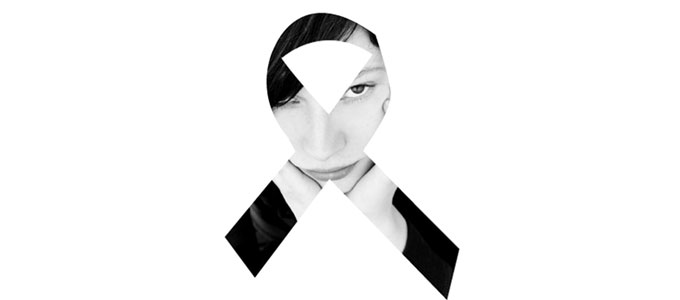by Stephanie Anderson
Apparently it’s December. The Christmas decorations are out, the malls of Cape Town are packed full of busy shoppers, and the familiar sound of Christmas music is everywhere. Yet, to this Minnesotan the palm trees, ocean breeze, and longer days give a completely different feel to the Christmas season. So while my internal clock and summer wardrobe don’t quite believe it, I’m starting to realize that it is, indeed, December.
With the unfamiliarity of spending the holiday season in a new culture, I’ve been acutely aware of the things that remind me of home. Of course, the most nostalgic part of the holiday season has been the music playing wherever I go: “Silent Night,” “Deck the Halls,” and “O Holy Night.” There is also the excitement of the coming of “Father Christmas” and the children at school are busy writing their lists in hopes that they have been good enough this year. The tree is up in the living room, the Sunday school put on an adorable Nativity play last week, and though Black Friday isn’t “celebrated” here in South Africa, the stores are packed with shoppers and Christmas promotions have begun.
Christmas in Cape Town
Besides the similarities and differences of a Christmas away from Minnesota, my heart and mind have been focused in new ways as the season begins. December 1st is known worldwide as World AIDS Day , a day to remember those who have died from HIV and AIDS, to support and walk beside those who are infected or affected, and to recognize the realities of this disease—which is thought to currently infect over 33 million people (28 million in Africa alone).
While working and living in South Africa, one of the countries with the highest number of infected people on the globe, this day takes on incredible new meaning for me and helps to shape how I enter this Christmas season. Throughout South Africa, school children, business workers, taxi drivers, and citizens all over the country show their solidarity with those who have HIV and AIDS by wearing red on this day. There are programs, free testing clinics, educational opportunities, and artistic expressions throughout the country that strive to bring attention to this disease. It is fitting that World AIDS Day falls in the month of December—the time of year that our hearts and minds are calmed and humbled, and when we feel compassion for others.
In a somber way, World AIDS Day reminds us of the humbleness of Jesus entering the world among the poor, the outcasts, and the weak, and that our call is to love and walk alongside those people, specifically those affected by HIV and AIDS, this season and always.
Everyday is Christmas in South Africa
 Christmas is a time to remember the incredible gift of Jesus and to recognize the humbleness and humanness of the Messiah entering the world, I have realized that the Christmas spirit of love, mercy, and compassion is a way of life for those whom I have encountered in South Africa. When trying to find the words to explain what exactly this “Christmas spirit” is, I realized that it is summed up in Ubuntu, the African theology that says, “I am because we are”–recognizing the incredible connection and interdependence of humanity and one’s life with another’s. Our feeling of connection and the recognition of shared humanity are especially prevalent during the holiday season; it’s when our compassion and empathy seem to peak. The Christmas season is probably the closest that many Americans get to experiencing the realness of Ubuntu.
Christmas is a time to remember the incredible gift of Jesus and to recognize the humbleness and humanness of the Messiah entering the world, I have realized that the Christmas spirit of love, mercy, and compassion is a way of life for those whom I have encountered in South Africa. When trying to find the words to explain what exactly this “Christmas spirit” is, I realized that it is summed up in Ubuntu, the African theology that says, “I am because we are”–recognizing the incredible connection and interdependence of humanity and one’s life with another’s. Our feeling of connection and the recognition of shared humanity are especially prevalent during the holiday season; it’s when our compassion and empathy seem to peak. The Christmas season is probably the closest that many Americans get to experiencing the realness of Ubuntu.
A humble birth
The humility of the manger and the child born in Bethlehem seem to be a common theme in the Christian lives of many people here. With poverty being ever-present in this country, valuing the lives of the poor and listening to their individual stories is regularly preached in church.
The ability to turn a blind eye to the poor, sick, and hurting–which is unfortunately common in the United States–is simply not possible here. The call to feed the hungry, clothe the naked, and shelter the homeless is an actual, day-by-day reality that is difficult to avoid in South Africa.
I think we North Americans should strive to keep our eyes open to the injustice and inequality of the world around us, and respond with the same compassion that we have during the Christmas season. Although financial donations and volunteer rates in the U.S. increase during the holiday season, food pantries, shelters, and other organizations struggle to maintain reliable financial and volunteer help throughout the year.
A financial donation is helpful, but a donation of time (and even more so, a commitment of time) is more powerful than anything we can pull from our wallets. We need to remember that a change in behavior and in attitude will help more than just those people we encounter. Our seemingly small acts affect the world in a greater way than we can imagine. As our Christmas seasons kicks off with World AIDS Day, let us take the time to consider those infected and affected by the disease, and seek for ways to walk alongside our global (and local) neighbors who live with this illness.
I wonder what would happen if the Christmas spirit—not of consumerism or materialism or busyness, but of peace and compassion and love—continued throughout the year for all people, as I have seen it lived out in South Africa.
As Philippians 2 reminds us: “Let the same mind be in you that was in Christ Jesus, who though he was in the form of God, did not regard equality with God as something to be exploited, but emptied himself, taking the form of a slave, being born in human likeness. And being found in human form, he humbled himself and became obedient to the point of death—even on the cross.”
What if the selfless acts and love that often accompany the Christmas season weren’t just reserved for December? What if the gifts of love and mercy brought humbly in the form of a child inspired us throughout the coming year to humble ourselves as well. Not to give blindly to charities or objectify those in need, but to listen, learn, and affirm the incredible value of the poor, the sick, the hungry, the marginalized, and the voiceless. In doing so, we realize the spiritual richness of living alongside those who are pushed toward the outskirts of society. May we embrace Ubuntu and and let it guide our lives well beyond this Christmas season.
Stephanie Anderson served as an ELCA Young Adult in Global Mission volunteer in South Africa.
This article originally appeared in the December 2012 issue of Cafe.

